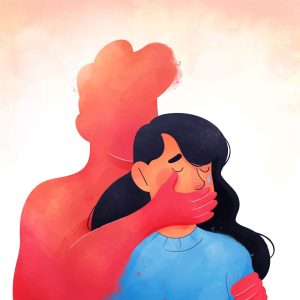Punishment for Rape in India: Rape is a sort of sexual assault in which the offender engages in sexual intercourse or other types of sexual penetration without the victim’s permission. Until 2012, it was thought to be a crime perpetrated only by men against women. However, in 2012, the definition of rape was altered to include victims of both genders. Essential ingredient: There must be a lack of consent. In this blog post, we will look at the subject of rape in India and the legal penalties for the offence.

Recommended: Smartest People In The World With High IQ
History of Rape in India
Rape was considered a weapon of war in ancient times. During a country’s conflict, soldiers raped women. Women from ethnic groups were raped by enemy soldiers and were sometimes raped by HIV-infected individuals. Military sexual slavery and systematic rape were proclaimed crimes against women by the United Nations in 1993.
Notable incidents of rape in India include the Ajmer rape case of 1992, the Delhi Gang rape case of 2012 involving a 23-year-old student on a public bus, and others. The cases listed below have been documented: the gang rape of a 22-year-old photojournalist in 2013 while she was interning at an English-language magazine in Mumbai; the rape of a 71-year-old nun in Ranaghat, West Bengal in March 2015 by six intruders at the Convent of Jesus and Mary; the rape of Meghwal in 2016 in Delta; the rape of 8-year-old Asifa in Rasana village near Kathua, Jammu and Kashmir; the rape of a 17-year-old girl in Unnao in 2017; and many more cases.

Recommended: Most Expensive Universities In The World
Rape in India
In India, rape is the fourth most frequent crime committed against women. As per the National Crime Records Bureau’s (NCRB) 2021 annual report, there were 31,677 recorded rape cases nationwide, which translates to an average of 86 cases per day. This represents an increase from 28,046 cases in 2020 and 32,033 cases in 2019. Approximately 89% of the 31,677 rape cases were perpetrated by individuals who knew the victim, accounting for 28,147 of those cases. Ten percent of the victims were under the legal consent age of eighteen or were minors.
Without a doubt, rape is a terrible crime and a major concern in India. Rape is the fourth most frequent crime against women in India, according to a 2013 report by the National Crime Records Bureau. India’s Madhya Pradesh state has the most rape reports overall, but Jodhpur has the most per capita, with Delhi coming in second.

Recommended: How to start a law firm in India
According to Indian Penal Code section 375, a man is considered to have committed rape if he:
(a) Partially penetrates a woman’s mouth, urethra, anus with his penis, or causing her to do so with him or another individual;
(b) partially inserting any object or body part—that is, something other than a penis—into her vagina, urethra, or anus;
(c) manipulating any part of her body to cause penetration into her vagina, urethra, anus, or any other part of her body, or causing her to do so with him or another individual; or
(d) Applying his mouth to a woman’s vagina, anus, or urethra, or compelling her to do so with him or another, under conditions that fit any of the following seven descriptions:
First- Against her will
Second: Without her consent;
Third: With her consent, provided it was obtained by making her fear harm or death, or by placing her on any person in whom she is interested.
Fourthly: When the man has her consent even though he is aware that she does not consider him to be her husband and that she is only giving her consent because she thinks she is legally married to another man.
Fifth: With her consent if, at the time of consenting, she is mentally ill, drunk, or has been administered any stupefying or unwholesome substance by him or through another, and she is unable to understand the nature and implications of the thing to which she is consenting.
Sixth: With or without her consent, if she is younger than eighteen.
Seventh: When she is unable to give her consent.

Recommended: How to become a successful lawyer
Definition 1: For the purposes of this section, vagina includes labia majora.
Definition 2: Consent is the woman’s explicit and voluntary expression of her desire to partake in a particular sexual act through gestures, words, or any other form of verbal or nonverbal communication.
With the caveat that a woman will not be interpreted as giving her consent to sexual activity simply because she does not physically resist a penetration act.
Exception1: A medical procedure or intervention is not considered rape.
Exception 2: A man’s sexual acts or interactions with his own wife, provided that she is not under the age of fifteen, do not qualify as rape.
The Delhi Gang Rape case in 2013 led to numerous legal amendments, including raising the consent age from 16 to 18. In this section, the definition of rape is also broadened to include any degree of penetration. For rape cases, the government has also instituted a fast-track court system.
Punishment for Rape in India
The Indian Penal Code’s section 376 lists the punishment for rape. With the exception of the situations listed in subsection 2 of the same section, the penalty consists of a fine and rigorous imprisonment lasting at least seven years, with the possibility of life in prison. In April 2018, anyone found guilty of raping a child under the age of twelve could face the death penalty.

Recommended: Countries Where Teachers Are Paid the Most
Capital Punishment for Rape
In nations where Muslims predominate, death is the penalty. A report claims that these countries have lower rates of rape crimes than those where offenders face sentences other than death. In India, the death penalty is debatable when it comes to rape cases. In Laxman Naik v. State of Orissa, the court found that the victim, a 7-year-old girl who had been sexually assaulted by her uncle, had enough injuries to demonstrate the rape and murder’s brutality, and the accused was given the death penalty.
The well-known capital punishment case is the Nirbhaya Gang Rape case, also referred to as the Delhi Gang Rape case. After the rape and murder, people’s outpouring of grief and anger gave rise to hopes for change in India. The Supreme Court ruled that the accused in this case should be hanged to death because the severity of the crime cannot be overlooked and there is no possibility of rehabilitation. An ordinance passed by the Indian government stipulates that rapes that result in death or leave the victim in a “persistent vegetative state” will carry the death penalty. Whether an accused person should receive the death penalty in a rape case is still up for debate.

Recommended: Most Dangerous Foods in The World
Current Position of the Law on Punishment for Rape in India
However, as of April 2018, anyone found guilty of raping a child under the age of twelve is eligible to receive the death penalty. But rape is rape, even if the victim is older than 12 years old. If there is no distinction between raping a girl under the age of 12 and one over, why is the punishment so drastically different? Why only those who rape children under the age of 12 are subject to the death penalty?
The new law may prevent rapes of children under the age of 12 because those who would do so would be afraid of being killed. However, what about girls over the age of 12? Victims of sexual assault suffer psychologically as well as physically. It ruins a girl’s entire life.
The accused is acting sensibly when he commits this horrible crime. Even without her consent, there is always a psychological component to having a sexual relationship with a girl. Even a few years of incarceration won’t alter the accused person’s perspective.
Since a rapist poses a threat to society, they should be executed, or subjected to the capital punishment, in order to set an example for others and lower the number of rape cases. The victim’s age should not be taken into consideration when deciding whether to execute the rapist in a case of rape.
The Nirbhaya Gang Rape case demonstrates that a rapist’s age should not be taken into account when determining whether to execute a victim. In that case, the fourth rapist, who was underage, was not given the same treatment as the other rapists despite evidence linking his act to the victim’s death. He did not receive the death penalty simply because he was a minor.
Recommended: How To Carry Yourself As A Woman
Conclusion
In 2023, the Centre proposed bills to modernise India’s criminal laws, including tougher penalties for rape and distinct legislation for rape of minors. Marital rape is still exempt from the bill’s rape statute, though.
In August 2023, the Centre presented three new bills to Parliament with the goal of completely overhauling the criminal justice system. The largest revision to criminal laws made by a government in the last 70 years is the overhaul of the Indian Penal Code, the Criminal Procedure Code, and the Indian Evidence Act. Significant modifications to the laws pertaining to sexual assault and rape have been proposed. The new bill includes an entirely new chapter devoted to offences against women and children.

Edeh Samuel Chukwuemeka, ACMC, is a lawyer and a certified mediator/conciliator in Nigeria. He is also a developer with knowledge in various programming languages. Samuel is determined to leverage his skills in technology, SEO, and legal practice to revolutionize the legal profession worldwide by creating web and mobile applications that simplify legal research. Sam is also passionate about educating and providing valuable information to people.